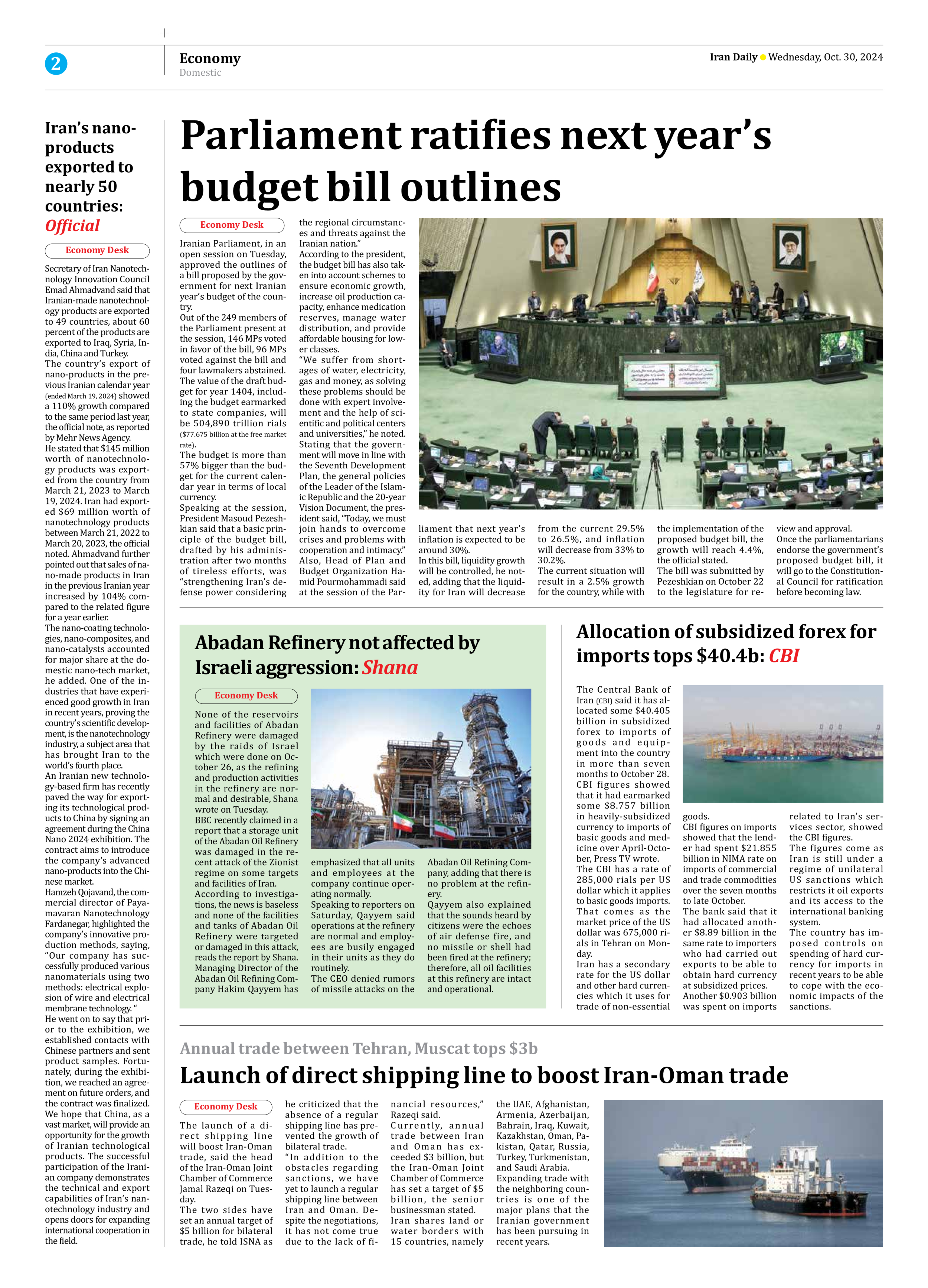
Parliament ratifies next year’s budget bill outlines
Iranian Parliament, in an open session on Tuesday, approved the outlines of a bill proposed by the government for next Iranian year’s budget of the country.
Out of the 249 members of the Parliament present at the session, 146 MPs voted in favor of the bill, 96 MPs voted against the bill and four lawmakers abstained.
The value of the draft budget for year 1404, including the budget earmarked to state companies, will be 504,890 trillion rials ($77.675 billion at the free market rate).
The budget is more than 57% bigger than the budget for the current calendar year in terms of local currency.
Speaking at the session, President Masoud Pezeshkian said that a basic principle of the budget bill, drafted by his administration after two months of tireless efforts, was “strengthening Iran’s defense power considering the regional circumstances and threats against the Iranian nation.”
According to the president, the budget bill has also taken into account schemes to ensure economic growth, increase oil production capacity, enhance medication reserves, manage water distribution, and provide affordable housing for lower classes.
“We suffer from shortages of water, electricity, gas and money, as solving these problems should be done with expert involvement and the help of scientific and political centers and universities,” he noted.
Stating that the government will move in line with the Seventh Development Plan, the general policies of the Leader of the Islamic Republic and the 20-year Vision Document, the president said, “Today, we must join hands to overcome crises and problems with cooperation and intimacy.”
Also, Head of Plan and Budget Organization Hamid Pourmohammadi said at the session of the Parliament that next year’s inflation is expected to be around 30%.
In this bill, liquidity growth will be controlled, he noted, adding that the liquidity for Iran will decrease from the current 29.5% to 26.5%, and inflation will decrease from 33% to 30.2%.
The current situation will result in a 2.5% growth for the country, while with the implementation of the proposed budget bill, the growth will reach 4.4%, the official stated.
The bill was submitted by Pezeshkian on October 22 to the legislature for review and approval.
Once the parliamentarians endorse the government’s proposed budget bill, it will go to the Constitutional Council for ratification before becoming law.







